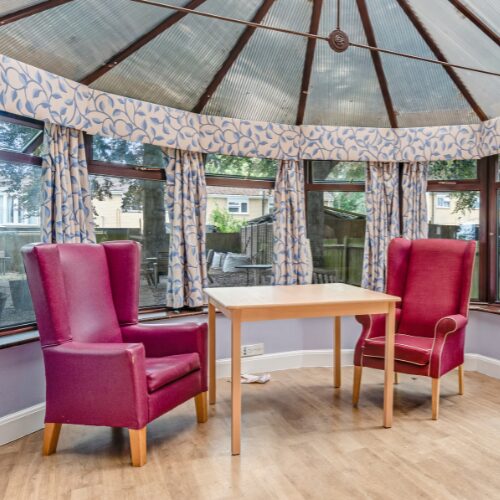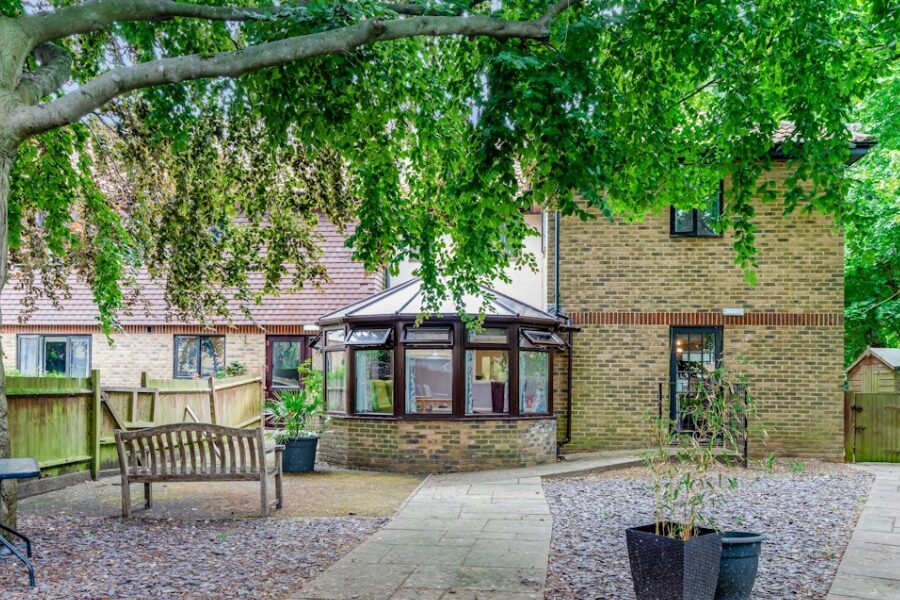Our dedicated team of care professionals goes beyond providing basic assistance – they take the time to truly know every resident, understanding their life stories, interests, and routines to create individualised care plans that promote dignity and independence. Our brilliant team delivers not only exceptional quality of care but also promotes well-being and support through recreation and activities.
For families and those in care navigating the care journey of finding the right care solution, Copper Beeches offers not just expert care but genuine peace of mind, knowing their loved one is in capable, compassionate hands.
For all enquiries, including arranging a visit to Copper Beeches, please complete the form at the bottom of this page, call 0118 911 7010, or visit the ‘Contact us’ section.


See what residents and their families say about our team, quality of care, and facilities at Copper Beeches Care Home

Meet some of the compassionate Care team at Coppes Beeches, dedicated to creating a warm, safe, and supportive environment for every resident and their families.
Care Home Manager
Andy is an experienced care leader with a passion for delivering great care and support. His philosophy is based on delivering care he would want to see his family receive and sets a high benchmark for quality standards. He is also someone that enjoys spending time supporting charities and the wider community having always volunteered to support those with learning disabilities and supporting students in college as an interpreter.


Assistant Care Home Manager
As the Deputy Home Manager at Copper Beeches, Sabrina works alongside Rebecca in the day-to-day operations of the home. She supports our residents by ensuring they receive care that is of high quality and meets their individual needs, overseeing our Care team, managing clinical aspects, and auditing to ensure we provide a safe and comfortable environment.


What type of care do you offer in Care Homes?
We do our best to meet the needs of our residents at all times, whether they are here for only one day or for a longer period of time. We also offer specialised care services, such as;
Are Belmont Care Homes certified and inspected by authorities?
The Care Quality Commission has signed up Belmont Care Homes and given its approval (CQC). The CQC looks for new ways to make sure that the health and social care services in England are safe, well-run, considerate, and of high quality.
What is the difference between a care home and a nursing home?
Nursing care is like residential care in that it helps people who need a registered nurse to watch over them all the time. Residential care gives people who need extra help and support a place to live that feels like home and is supervised by staff who are on call 24 hours a day, 7 days a week.
Are there any State Benefits we may be entitled to?
Most state benefits are based on a person’s income. Attendance Allowance is an exception. It is a tax-free state benefit that is paid to all people over 65 who have needed care (help with essential daily tasks like washing and dressing) for more than six months in a row.
There are two rates for Attendance Allowance: a lower rate for people who need help only during the day or night, and a higher rate for people who need help both day and night. In 2015/16, the lower rate is £55.10 per week and the higher rate is £82.30 per week. Claim forms can be picked up at larger Post Offices or Citizens Advice Bureaux, or they can be downloaded from www.direct.gov.uk.
People under 65 who need care will still be able to get an allowance, but it will be in the form of a Disability Living Allowance.
Is there free nursing care?
If a person in a nursing home is found to need nursing care from a registered nurse, the NHS will pay for it. This cost is a flat rate of £112 at the standard rate or £154.12 at the higher rate a week in England and £140.90 a week in Wales for 2015/16. It is called NHS-funded nursing care (formerly known as the registered nursing care contribution).
Anyone moving into a nursing home should be checked to see if they are eligible for nursing care paid for by the NHS. If so, the nursing home will receive this money immediately. After that, the assessment is done again every year, and it is possible that people will be re-banded after each one.
Continuing Health Care
Some people with long-term health needs may be able to get the Primary Care Trust to pay for all of their nursing home costs (PCT). A designated nurse from the PCT does a continuing care health assessment to see if a person is eligible. This assessment is then taken to a panel to talk about whether the person meets certain criteria.
The assessment should be done with the resident’s knowledge and input, as well as that of the person’s next of kin and any other professionals who are helping to care for the person. In some cases, like when a person has a terminal illness with a life expectancy of one month or less, the assessment process can be sped up.
What if we want a more expensive care home?
You can choose a care home that costs more than what your local council usually pays for a person with your assessed needs, but you may need to find a way to pay the difference.
If the council can find a place that meets your needs but you still want to move into a more expensive care home, they can ask a third party (usually a relative or friend) to pay the difference. This is called a ‘top-up fee’. Because you’ve been instructed to pay only what you can afford, you cannot pay this on your own.
If your local council can’t find a place in your area that meets your needs, they should be willing to pay more than they usually do.